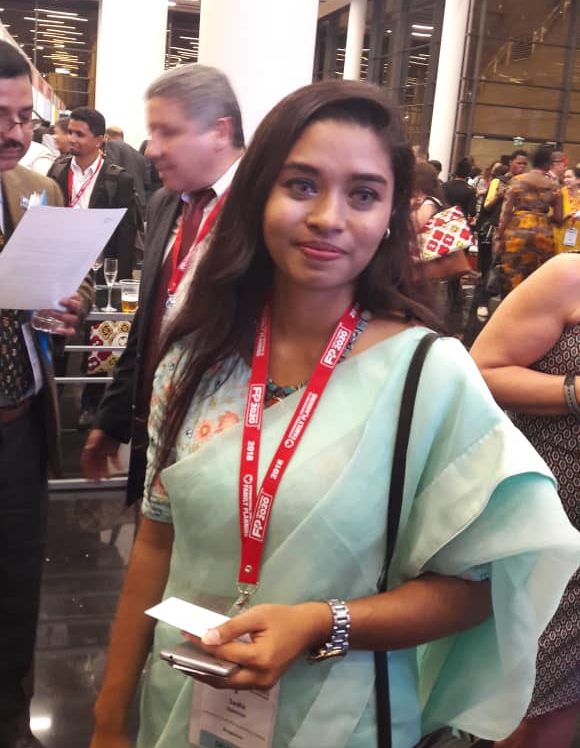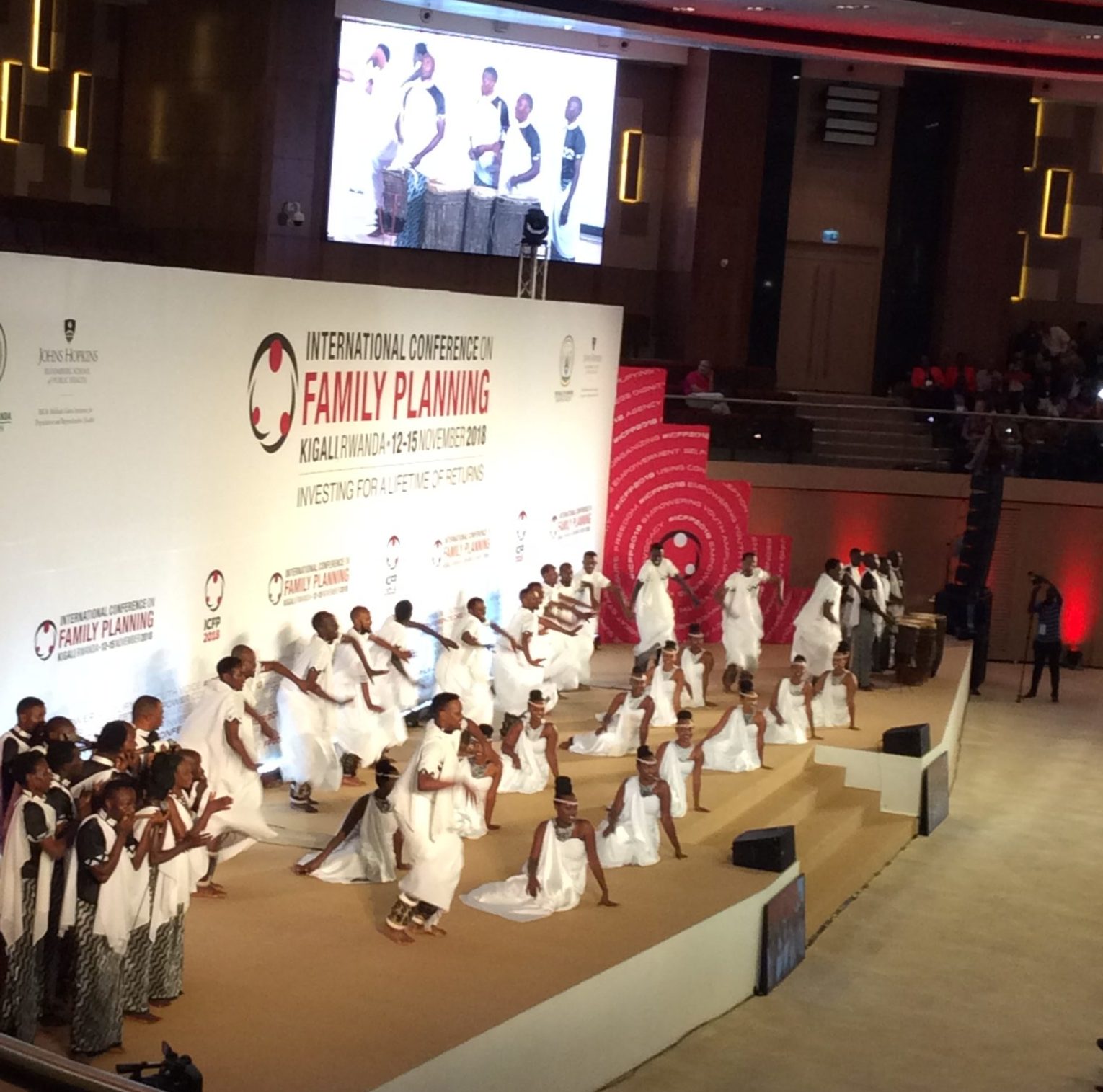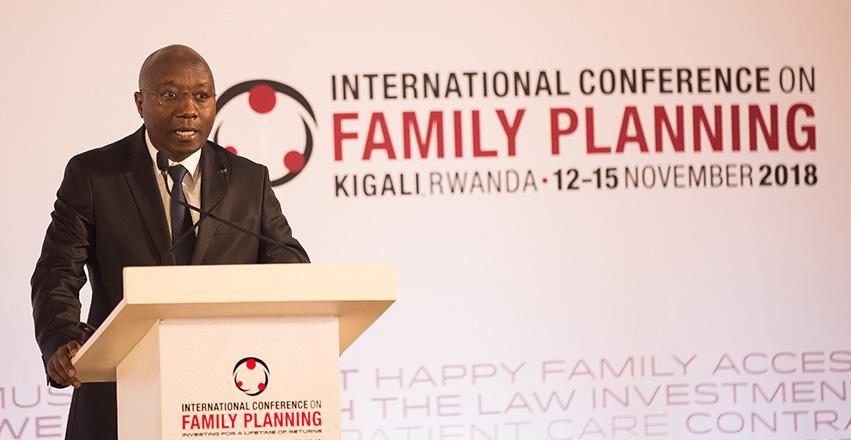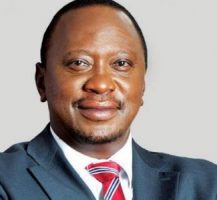The 2018 International Conference on Family Planning (ICFP) was declared open Monday by Rwandan Prime Minister, Èdouado Ngirente, with a call for continued investment to improve the well-being of people all over the world.
But Nigeria, the most populous country in Africa and which has more family planning issues than other countries on the continent was conspicuously absent at the event.
Representatives of international organizations, government functionaries and non- governmental organizations around the world presented goodwill messages at the opening ceremony.
This theme for this year’s conference which is taking place from November 12-15, at the state-of-the-art Kigali Convention Centre is, “Investing for a Lifetime of Returns.”
In his keynote address, Dr. Ngirente urged countries to increase efforts in equal rights in family planning and described it not only as a women’s issue but also a development issue.
“Family planning is not just a women’s issue, it is a development issue and affect all of us.”
He also emphasized the extensive and far-reaching social and economic benefits of investing in family planning and called for global commitments to address challenges in conception access.
“Family planning is one of the most cost-effective ways to improve the well-being of people in all countries.
“The African continent is very youthful and the biggest challenge facing African leaders today is how to harness our youthful population into agents of sustainable development. Investment in young people and human capital, in general, can enable us to harness a demographic dividend across our continents,” he said.
The prime minister also highlighted achievements of the Rwandan Government in gender equity saying women are 50 per cent in the cabinet and 61 per cent in Parliament.
“Our Constitution provides that women occupy at least 30 per cent of positions in decision-making organizations. Women represent 50 per cent in the current Cabinet and 61 per cent of Parliament,” Dr. Ngirente said.
Other speakers highlighted findings from the 2018 Annual Report released Monday by Family Planning 2020 (FP2020), a global partnership focused on enabling an additional 120 million women to access voluntary by 2020.
According to the report, since 2012, 46 million more women and girls who want to avoid or delay pregnancy have begun using a modern method of contraception in the world’s 69 poorest countries.
This represents an increase that is about 30 per cent greater than the historic trend, bringing the total number of women and girls with access to modern contraceptives to 317 million in these regions.
“As of July 2018 the number of women and girls using a modern contraception was the highest in history,” said Dr. Natalia Kanem, Executive Director of the United Nations Population Fund.
Dr. Kanem also expressed her worries over the existing gaps in access to modern contraceptives to a large number of women and girls across the world.

“It’s my biggest worry that we still have a long way to go to bring lifesaving modern contraceptives to every woman and girl who wants to prevent pregnancy, no matter where she is or who she is, so it’s time to pick up the pace. Let us build on the progress we’ve made until we achieve our ultimate goal: Universal Access.”
Also speaking, Dr. Christopher Elias, president of the Global Development Programme at the Bill and Melinda Gates Foundation, urged stakeholders around the world to think out of the box to keep their promises to women and girls in their various countries.
“If we’re going to keep our promise to women and girls, we have to think differently, go beyond linear thinking and be disruptive,” he said adding “this is essential to blend the curve and get ourselves on track for universal access by 2030.”
READ ALSO: ICFP 2018: Young People Speak Truth to Governments

Many speakers noted with satisfaction Rwanda’s commitment to improving health and access to family planning services, which serves as an inspiration and example for other countries to emulate.
Between 2014 and 2015, 48 per cent of all married women in Rwanda were using modern contraception, though more efforts are still needed to increase the number of family planning users.
Speaking earlier, Minister of Health of Rwanda, Dr. Diane Gashumba, in her welcome address, highlighted the successes of her country in family planning saying the commitment was enormous.
“Rwanda is committed to improving awareness and increasing demand for family planning, expanding the range of contraceptive methods available, adding long-acting and reversible options, and ensuring the availability of family planning to 14, 841 Rwandan administrative villages by 45,000 community health workers,” Dr. Gashumba said.
Adding her voice to calls for more commitments, the representative of the young people under the auspices of International Youth Alliance for Family Planning (IYAFP), Ms Sadia Raham, expressed her appreciation to the organizers for the opportunity “to represent the incredibly amazing young people that are here today and the 1.8 billion young people in the world.”
Speaking about the capacities of young people and the need for stakeholders to recognize and harness such, she implored them to engage young people to achieve more returns on investments.
“We young people have the power to change the world and when we get invested we make sure that investment is not a waste rather it is returned with a lifetime of returns, she said, adding “to the politicians and governments in the room I say engage us. To the donors in the room, I say invest in us.

“To the NGOs (Non-governmental Organizations) in the room, I say work with us so that together we can assure that all young people around the world can have a future that many are denied till today.”
Ms Raham who is the Programme Officer, SERAC – Bangladesh, got a thunderous applause from the over 600 young people at this year’s event.
Highlight of the evening was the presentation of Global Humanitarian Award for Women’s and Children’s Health to Ms Susan Packard Orr, founder and chief executive officer of Telosa Software and member of the Board of Directors of the David and Lucile Packard Foundation.
The award recognises individuals for their contributions and commitment to advancing maternal and child health and well-being, especially family planning in communities around the world.
About 4,000 global policy-makers, researchers, young people, faith leaders and family planning advocates from around the world are present at this year’s event, which is co-hosted by Bill and Melinda Gates Institute for Population and Reproductive Health at the John Hopkins Bloomberg School of Public Health and the Ministry of Health of the Republic of Rwanda.











